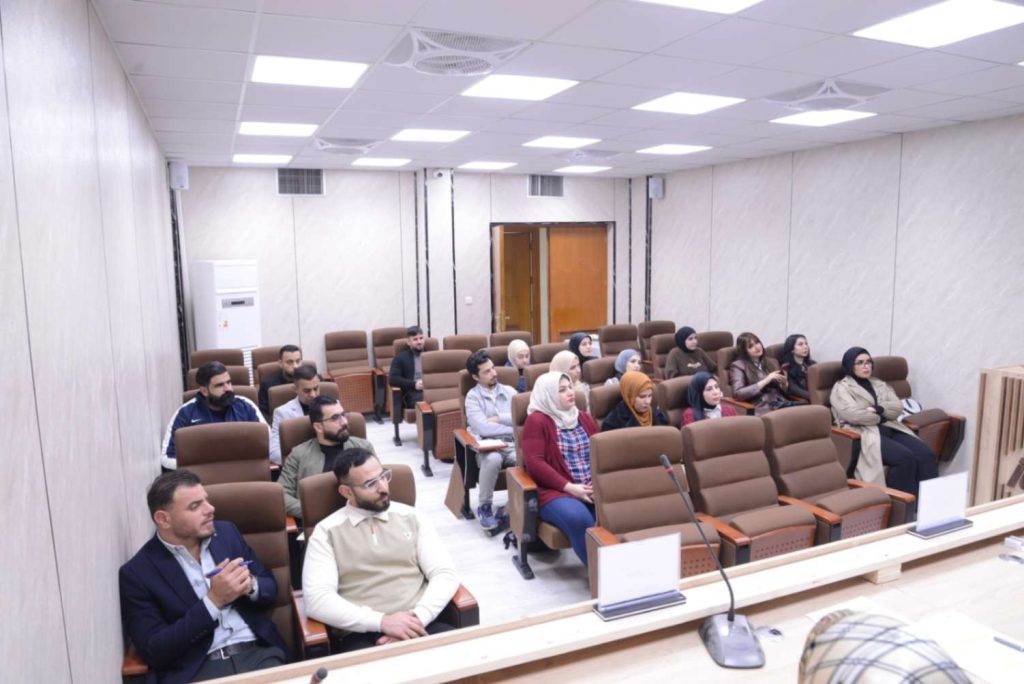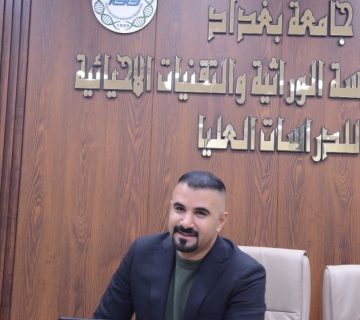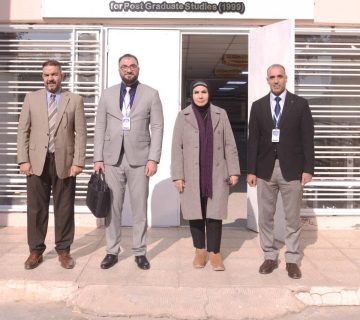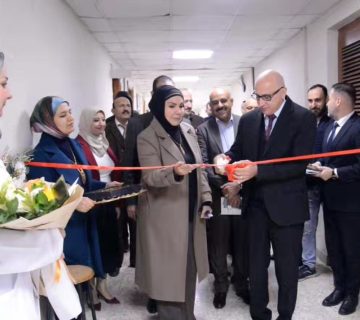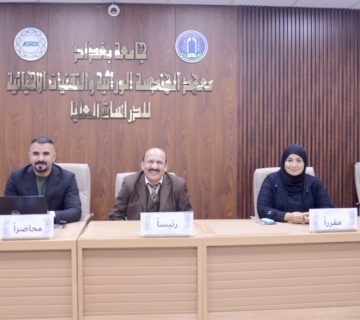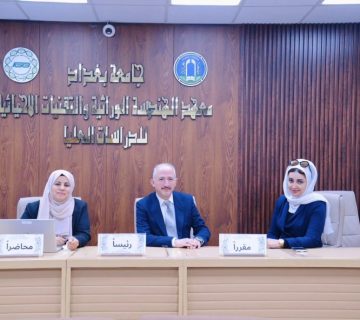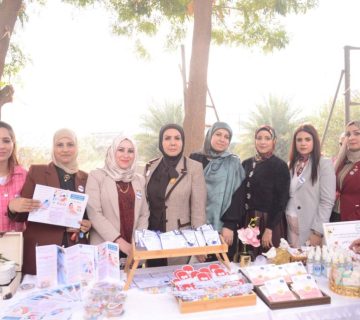The Institute of Genetic Engineering and Biotechnology for Postgraduate Studies at the University of Baghdad organized a training course titled “Chemical, Biological, and Radiological Safety and Security.”
The course was delivered by faculty members of the institute, including Professor Dr. Muna Turki Al-Mousawi, Professor Dr. Essam Fadhel Alwan, Professor Dr. Qais Qasim Ghima, and Assistant Professor Dr. Ghassan Mohammed, with the participation of faculty, staff, and students of the institute.
The course aimed to train students and researchers who are beginning the practical phase of their research, focusing on the management of hazardous chemical and biological materials in scientific laboratories.
The training included a series of lectures, beginning with one delivered by Assistant Professor Dr. Ghassan Mohammed, titled “Biological Safety and Potential Risks of Biosecurity.”
The lecture aimed to introduce researchers to biological safety, ensuring a secure work environment that protects workers from diseases and prevents the spread of biological contaminants outside the workplace.
It emphasized the importance of controlling biological contaminants through risk management and assessment at the workplace.
The second lecture, titled “Managing Hazardous Chemical Materials in Scientific Laboratories,” was presented by Professor Dr. Essam Fadhel Alwan Al-Jumaili.
This lecture focused on introducing researchers and laboratory workers to the challenges posed by hazardous chemical waste, which has become a major concern for environmental specialists due to its severe and destructive impacts on human health and the environment. The increasing use of these materials, driven by population growth in the region, has exacerbated the problem, with some substances remaining hazardous for decades without change. The lecture also highlighted the importance of proper handling and management to avoid catastrophic consequences, which have occurred in the past due to misuse.
The course included practical training on the use of biological and chemical laboratories. Participants explored chemical, microbiological, and genetic engineering laboratories.


